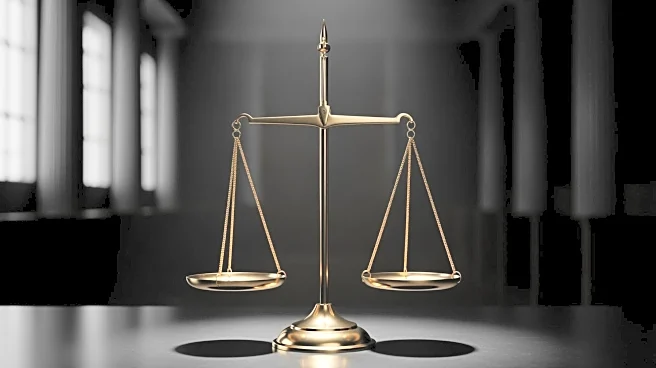What's Happening?
The Justice Department is preparing to seek a grand jury indictment against John Bolton, who previously served as the national security adviser. This development follows allegations that Bolton may have
disclosed classified information in his memoir, 'The Room Where It Happened,' which details his time in the Trump administration. CBS News reports that the DOJ is expected to present a criminal case, potentially leading to charges against Bolton. The move underscores ongoing tensions between Bolton and the administration, particularly regarding his public criticisms and revelations about President Trump's foreign policy decisions.
Why It's Important?
The potential indictment of John Bolton is significant as it highlights the ongoing legal and political battles surrounding the disclosure of sensitive government information. If Bolton is charged, it could set a precedent for how former government officials handle classified information post-tenure. This case may also impact public discourse on transparency and accountability within the government, especially concerning national security matters. The outcome could influence how future administrations manage internal dissent and whistleblowing, affecting both political dynamics and public trust.
What's Next?
Should the grand jury decide to indict Bolton, the case will likely proceed to trial, where the legal arguments surrounding the classification and disclosure of information will be scrutinized. This could lead to broader discussions on the balance between national security and freedom of speech. Political leaders and legal experts may weigh in on the implications of the case, potentially influencing legislative measures on information security. The trial could also affect Bolton's public standing and his role as a commentator on U.S. foreign policy.
Beyond the Headlines
The indictment of a former national security adviser raises ethical questions about the limits of confidentiality and the rights of officials to share their experiences. It may prompt debates on the ethical responsibilities of public servants and the potential consequences of breaching trust. Additionally, the case could lead to discussions on the legal frameworks governing memoirs and publications by former government officials, potentially affecting future publications and disclosures.








